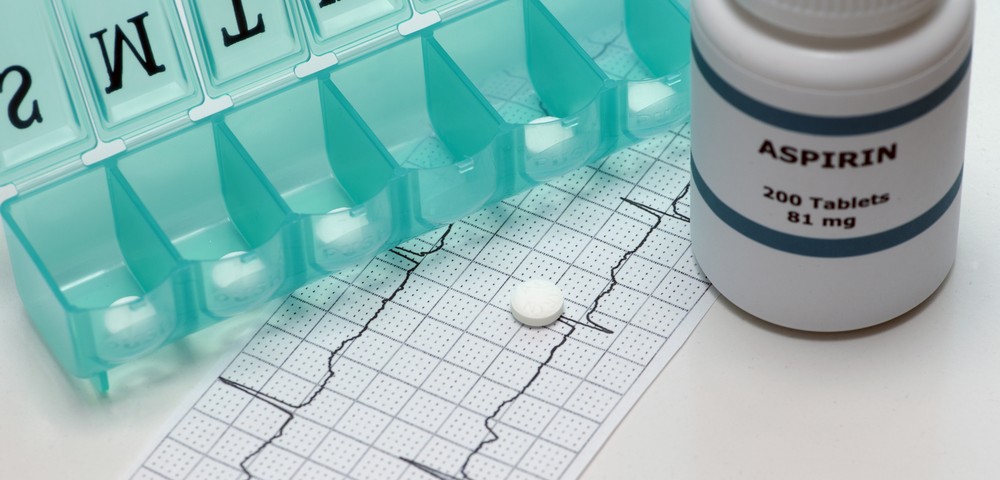Regular aspirin use in men with prostate cancer is potentially associated with a reduced risk of prostate cancer-specific deaths, according to a study presented at the 2016 Genitourinary Cancers Symposium in San Francisco.
The study, “Regular aspirin use and the risk of lethal prostate cancer in the Physicians’ Health study,” is available at the meeting’s website.
Several studies have reported the preventive effects of aspirin against many diseases, such as cardiovascular disease. Such suggested benefits have also been reported for prostate cancer, with several reports hinting at an inverse correlation between aspirin use and advanced prostate cancer. But potential effects on lethal prostate cancer had not yet been investigated until now.
Researchers evaluated data from 22,071 male patients who enrolled in the Physicians’ Health study from 1982 to 2009 to assess the association between regular aspirin intake (defined as more than three tablets per week) and lethal prostate cancer, manifested as metastases or prostate cancer death.
Secondary outcomes included the incidence of total, high-grade and advanced cancers. Results show that, among the 3,193 men diagnosed with prostate cancer during the 27 years of follow-up, patients who regularly took aspirin after diagnosis had a 39 percent reduced risk of death from the cancer.
Moreover, men without prostate cancer at the time they enrolled in the study and who took aspirin regularly had a 24 percent lower risk for lethal prostate cancer, although their risk for developing any sort of prostate cancer was not affected.
Researchers say the link between the potential benefits of aspirin and lethal prostate cancer is still unknown, although they suggest a possible activation of the immune system through limitation of platelets, leading to increased identification of cancer cells and prevention of metastases.
Importantly, use of aspirin before a man is diagnosed with prostate cancer had no measurable benefit.
In 1982, when the study began, men were taking doses of 325 mg. of aspirin at least three times a week. But after five years that changed, and not all dosages were monitored in all study participants. Some continued taking the 325 mg. dose; others moved to a lower 81-mg. dose; and other men were somewhere in between.
Although its potential in slowing or halting the steady progression of the disease is suggested, the study’s authors also note the potentially harmful side effects of aspirin use as well.
“It is premature to recommend aspirin for prevention of lethal prostate cancer, but men with prostate cancer who may already benefit from aspirin’s cardiovascular effects could have one more reason to consider regular aspirin use,” said Christopher Brian Allard, M.D., urologic oncology fellow at Brigham and Women’s Hospital and Massachusetts General Hospital, in a press release. “When discussing potential benefits of aspirin with their doctors, in terms of both cardiovascular health and risk of prostate cancer death, men should also consider potential risks of regular aspirin use.”

